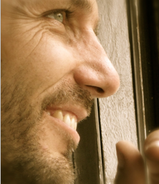
Take a moment to think back through your life. Have you ever noticed that even your closest friends can give you bad advice? Or that your family members, who you would love to be able to trust implicitly, have sometimes given advice which in hindsight was not in your best interest.
In most cases this 'bad' advice was given with the best intentions. Other people often 'think' they know what is best for us when in reality they do not. So blaming them for the poor advice is unfair, especially when ultimately we took the decision to listen to it.
It is the same with our own thoughts. Our thinking mind (or ego as it is often referred to) is constantly 'advising' us what to do. You will probably hear these thoughts inside your head throughout your day. 'I should do this', 'I should be more like that', I mustn't let them down', 'I need to do this', 'I am a bad person if I don't do that' etc.
Again take a moment to look back through your life and see if you can remember the times when you gave yourself bad advice. Have you ever woken up the next morning and thought 'What on earth was I thinking!'? Have you ever made a bad investment which at the time you thought was a good one? Have you ever thought that what you are about to say is funny, only to have your words received by shock, anger or disappointment?
Alternatively you may have noticed how your thinking ego can tell you little fibs. 'Just one drink won't hurt' or 'I can have one cigarette and then stop'. In hindsight we can see that believing our thoughts without question is not always a healthy practice.
The truth is that whilst the human ego may have plenty of good ideas, it also has its fair share of bad ones too. The endless stream of thinking passing through our minds can lead us to do great things but is also responsible for us doing some fairly stupid, mindless things too.
So given that we can't totally trust anyone else to give us good advice and we can't even trust our own thinking egos, who can we turn to? Fortunately there is one voice that is totally trustworthy. One voice that is incapable of lying or making a poor judgement. That voice is the voice of bodily sensations.
Sensations are the feelings that we get from our bodies. The tightness in the chest when we feel stressed, the feeling of joy when we do something kind, the feeling of hunger, pain or tiredness. These are all sensations. And the great news is that they never lie! Our bodies always provide the perfect response to whatever is happening for them in the moment. If we eat something sweet we receive the sensation of sweetness via our taste buds. If we eat too much sweet food, our stomachs send sensations that are warning us of the harm that overeating this type of food is doing to our digestive and other organs.
The big question is then, do we listen to the right voice at the right time? Do we stop eating the cakes on Christmas day because we begin to feel a bit bloated or do we listen to the ego telling us 'Oh go on, its Christmas!'?
This is the main message of any training in Mindfulness. We are mindful when we listen not only to the voice in our heads but also to the voice in our bodies. These sensations that we can feel throughout our day are the best guide to how to live a happy, peaceful and contented life.
So how do we tune into them? Start by practicing a bit of mindfulness every day. A ten minute sitting at the beginning of the day is enough to start big changes in your life. If you take this time then not only will you benefit directly from tuning into your sensations then but for the rest of the day you may also find that occasionally you remember to tune into your bodily sensations for a few seconds at a time.
Here is a simple ten minute mindfulness technique that you can practice wherever and whenever you like.
Mindfulness Meditation Technique: Breath Awareness
Set a timer for 10 minutes.
Sit with your back straight, neck long and your eyes closed. Breathe normally and smile. Bring your awareness to your breath and observe the sensations that arise in your nostrils as you breathe in and out. Try to consciously feel the touch of the breath in the nostrils as you inhale and exhale. Do not attempt to change your breathing but if your breathing naturally wants to change in any way then allow it to. If you cannot feel any sensations in the nostrils as you breathe then deepen the breathing slightly until you can feel some.
Observe the sensations of breathing in the nostrils for a short while and then move the awareness to the abdomen and observe the sensations of breathing which arise in your abdomen. After observing a few breaths in the abdomen, move your awareness to the diaphragm for a few breaths, and continue like this to the chest, the shoulders, the upper back, lower back and hips. Once you have completed the circuit, start again from the nostrils.
You may be aware of thoughts or other distractions coming into your consciousness. Keep moving your awareness away from thinking or distractions and focus on the breath. Every time that you notice that you have started to think and forgotten to observe your breathing, return your attention to the part of the body you were last working on.
For more insights into mindfulness, meditation and the benefits of self-enquiry please visit www.positivemeditation.com.
 RSS Feed
RSS Feed
